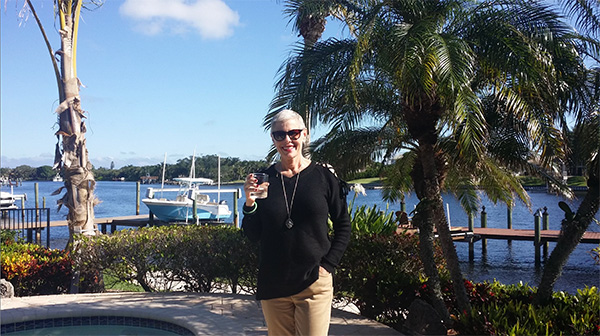
The Guelff Family Esophageal Cancer Project emerged as a beacon of hope and action in the fight against esophageal cancer in 2019, in memory of Lori Horne Guelff, Dr. G’s beloved wife, who courageously fought this disease for nearly two years.
This project is fueled by Lori’s wish that no one else would have to endure the same struggle. Lori played a huge role in advocating for herself and for others who may encounter this disease in their lifetime by living her stage four journey with cancer out loud, refusing to hide from or behind it and embodying a spirit of relentless determination.
Lori’s only initial symptom was difficulty swallowing, highlighting the stealthy nature of this disease. Given that the 5-year survival rate for patients with esophageal cancer is heartbreakingly low at 21.7%, it highlights the importance of early detection. Because of this, Dr. Guelff remains committed to tirelessly sharing Lori’s story and legacy, so that other lives may be saved.
The Guelff Family Esophageal Cancer Project aims to raise awareness about the importance of early detection and empower individuals to take charge of their health, through education, outreach and advocacy.
At the heart of the Guelff Family Esophageal Cancer Project is this powerful call to action: “Stay Alive at 45. Get Scoped!”
Drawing on the American Cancer Society’s recommendation of a colonoscopy for everyone at age 45, the project encourages individuals to take proactive steps for their health. By undergoing an endoscopy (Upper GI) and an ultrasound of the pancreas simultaneously during the same visit, individuals can complete three crucial procedures in one go — making early detection not only feasible but also convenient.
Today, The Guelff Family Esophageal Cancer Project proudly stands as a testament to the power of hope, resilience and community in the face of adversity. Together, we can turn the tide against esophageal cancer and ensure that Lori’s wish becomes a reality — a world where no one has to suffer needlessly from this disease. Join us in the fight for early detection, prevention and ultimately, survival.
